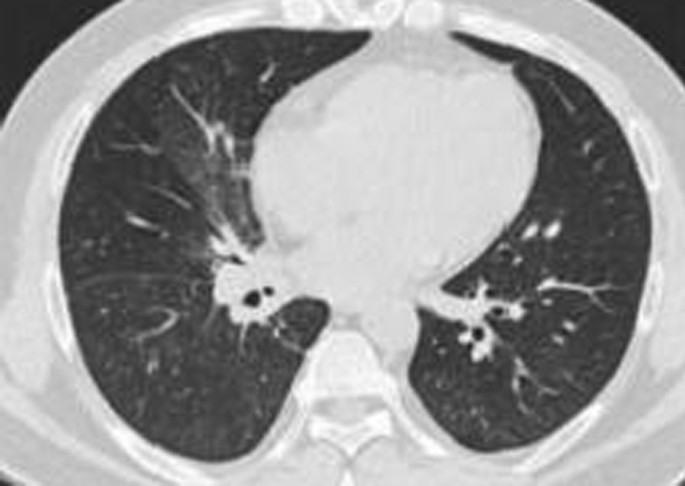
Exogenous lipoid pneumonia (ELP) is caused by aspiration of oily substances into the lungs, and results in symptoms, such as acute and chronic inflammation of the lungs, local pulmonary fibrosis, and granuloma, which can affect gas exchange and lead to respiratory failure, or even death in severe cases
Routine microbiological examination of samples for patients with diagnosed or suspected Exogenous lipoid pneumonia (ELP) is necessary.
Exogenous lipoid pneumonia (ELP) is a rare disease and its diagnosis is often mistaken or delayed. Secondary infection with rapidly growing non-tuberculous mycobacteria is a rare complication of lipoid pneumonia.
Researchers have reported a rare case of Mycobacterium infection secondary to exogenous lipoid pneumonia caused by nasal drops. The case has been published in BMC Pulmonary Medicine.
According to history a 38-year-old man presented with fever, cough, sputum, chest tightness, and shortness of breath. He had a 2-year history of allergic rhinitis and used liquid paraffin-containing menthol nasal drops daily. A chest CT scan showed multiple patchy ground glass opacities with blurred borders in both lungs, which were located in the inner pulmonary field and distributed along the bronchi. His ambient air PO2 was 63 mmHg. The patient was diagnosed with ELP by CT-guided lung biopsy. The nasal drops were discontinued, and systemic glucocorticoids were administered. During treatment, the pulmonary lesions deteriorated, and bronchoalveolar lavage was performed during bronchoscopy. Additionally, Mycobacterium abscessus was detected in the lavage fluid. Upon detection of a secondary M. abscessus infection, glucocorticoids were gradually discontinued, and anti-M. abscessus treatment was implemented. The patient’s symptoms rapidly ameliorated. After 11 months of anti-M. abscessus treatment, a repeat CT scan showed clear regression of the lung lesions.
Routine microbiological examination of samples, including sputum or alveolar lavage fluid, is necessary for patients with diagnosed or suspected ELP.
Reference:
Wang, H., Lu, S., Li, H. et al. Mycobacterium infection secondary to exogenous lipoid pneumonia caused by nasal drops: a case report and literature review. BMC Pulm Med 23, 47 (2023).
